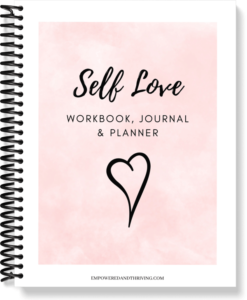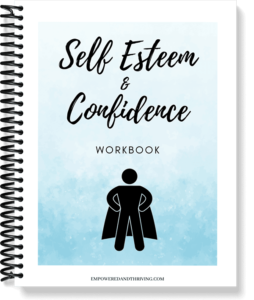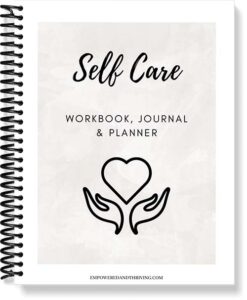Anger is a normal emotion that everyone experiences from time to time. It’s a natural response to situations that are frustrating, threatening, or unjust. However, when anger becomes uncontrollable or frequent, it can lead to negative consequences such as damaged relationships, health issues, and even legal problems. The good news is that there are effective ways to manage and get over anger. In this article, we’ll explore some practical tips and techniques for managing your anger and emotions.
Signs and Symptoms of Anger: How to Recognize Anger in Yourself and Others

Anger can manifest in many different ways, and it’s not always easy to recognize. However, there are some common signs and symptoms of anger that you can look out for in yourself and others. Being able to recognize these signs can help you address your anger before it gets out of control.
- Physical Signs of Anger: Some physical signs of anger include sweating, clenched fists, rapid breathing, increased heart rate, flushed face, and tense muscles. Other physical signs of anger can include trembling hands, grinding teeth, and tightness in the chest or throat. People may also experience a feeling of heat in their bodies or a racing mind as they become angry.
- Emotional Signs of Anger: Emotional signs of anger include feelings of frustration, irritability, and resentment. People may also feel overwhelmed or helpless in the face of their anger. Other emotional signs include feeling tense, anxious, or agitated.
- Behavioral Signs of Anger: Some behavioral signs of anger include aggression, withdrawal, and self-destructive tendencies.
- 1. Aggressive behavior: Aggressive behavior is a common sign of anger, and can include physical or verbal aggression. This may include yelling, hitting, throwing objects, or using threatening language.
- 2. Withdrawal: When someone is feeling angry, they may withdraw from social situations and become isolated. They may also avoid talking about the source of their anger or refuse to engage in conversations.
- 3. Self-destructive behavior: People may also act out their anger in self-destructive ways, such as drinking alcohol or using drugs to cope with their emotions.
Negative Effects of Anger: What Happens When Anger Goes Unchecked?

Anger can have a range of negative effects on your life, health, and relationships. When left unchecked, anger can escalate into aggression and violence, leading to harmful consequences for yourself and those around you. It’s important to understand the potential negative effects of anger so that you can take steps to manage it effectively.
- Health Effects of Anger: Some effects of anger on your health include increased cortisol levels, which can lead to a variety of physical and mental health issues such as headaches, high blood pressure, and depression. It can also weaken your immune system and make it harder for your body to fight off infections and illnesses.
- Relationship Effects of Anger: When anger becomes a regular part of your relationship, it can lead to a breakdown in communication and trust. You may be less likely to listen to the other person or take their feelings into consideration and also more likely to lash out and say hurtful things that can damage the relationship.
- Professional Effects of Anger: Not being able to control your anger can also affect your career and profession. You may find it difficult to work with others, or you may be seen as aggressive or unprofessional.
- Legal Effects of Anger: Some legal effects of anger include criminal charges for assault or other violent behavior.
Techniques for Managing Anger: How to Get Over Anger and Control Your Emotions
There are many effective techniques to get over anger and control your emotions. These techniques range from simple breathing exercises to more complex strategies such as cognitive-behavioral therapy. The key is to find the techniques that work best for you and practice them regularly.
1. Identify Your Triggers To Get Over Anger

One of the keys to managing anger is understanding what triggers it. Triggers can be different for everyone, but they are usually related to situations, people, or events that cause us to feel frustrated, overwhelmed, or threatened. Common triggers for anger include things like feeling disrespected, being criticized, feeling helpless or out of control or experiencing physical discomfort or pain.
To identify your own triggers, it can be helpful to keep a journal or take note of situations that make you feel angry or frustrated. Once you have identified your triggers, you can take steps to avoid them or minimize their impact.
This might include:
- Avoiding situations that trigger your anger.
- Finding ways to modify situations to make them less triggering.
- Developing coping strategies to deal with triggers when they do occur.
It’s important to note that avoiding triggers isn’t always possible or even desirable. Sometimes, we need to face difficult situations in order to grow and learn. In these cases, it can be helpful to develop coping strategies that allow you to manage your anger in a healthy way.
2. Learn To Cope In The Moment

When we can’t avoid our triggers we must learn to cope in the moment when we are experiencing a bout of anger.
Some effective coping strategies for dealing with anger triggers include:
- Taking a break to calm down before responding. When you find yourself triggered and angry, walk away. Give yourself a minute or two to calm down.
- Reframing the situation to see it in a more positive light. A great way to reframe your perspective is to immediately ask yourself questions. Ask yourself, “Did I understand what just happened correctly?”, “Is this really that important?”, or “Why am I letting this affect me?” Try to change your mindset and view what’s going on from a different angle.
- Using humor to diffuse the situation. Humor can help take the edge off of a tense situation and allow you to step back and gain perspective. It can also help break down barriers between people and create a more relaxed atmosphere. When using humor, it’s important to remember that it should never be used to belittle or insult someone.
3. Practice Relaxation Techniques

Relaxation techniques is a powerful technique to get over anger. They help to reduce tension and stress in the body, which can make it easier to stay calm and in control in difficult situations. There are many different relaxation techniques you can try, but some of the most effective ones for managing anger include:
- Deep Breathing: Deep breathing is a simple and effective way to reduce stress and tension in the body. It involves taking slow, deep breaths and focusing on the sensation of the breath moving in and out of the body. By taking deep breaths, you can slow your heart rate and lower your blood pressure, which can help you feel calmer and more relaxed.
- Progressive Muscle Relaxation: Progressive muscle relaxation is a technique that involves tensing and then relaxing different muscle groups in the body. By tensing and releasing each muscle group, you can become more aware of the sensations in your body and release tension and stress. This technique is particularly helpful for people who hold tension in their muscles.
- Visualization: Visualization involves imagining a peaceful scene or situation that makes you feel calm and relaxed. It can be helpful to practice visualization before a potentially stressful situation, such as a meeting or presentation, to help you feel more calm and focused. You can also practice visualization in the moment when you start to feel angry, imagining yourself in a peaceful and relaxing environment.
By practicing relaxation techniques regularly, you can train your body to stay calm and relaxed in difficult situations, which can help you manage your anger more effectively.
4. Improve Your Communication Skills

Communication is an important part of managing anger. When we’re able to express our thoughts and feelings clearly and effectively, we’re less likely to become angry or to feel misunderstood. There are several communication skills that can be particularly helpful in managing anger:
- Assertiveness: Assertiveness involves expressing your thoughts and feelings in a direct and respectful way. When you’re assertive, you communicate your needs clearly and effectively without being aggressive or disrespectful. This can help to prevent misunderstandings and defuse potentially volatile situations.
- Active Listening: Active listening involves paying close attention to what the other person is saying and asking questions to clarify their meaning. When you’re able to listen actively, you’re better able to understand the other person’s perspective and to respond in a way that’s respectful and constructive.
- Empathy: Empathy involves putting yourself in the other person’s shoes and trying to understand their thoughts and feelings. When you’re able to show empathy, you’re more likely to be able to resolve conflicts in a way that’s mutually beneficial.
By practicing these communication skills regularly, you can become more skilled at managing difficult conversations and resolving conflicts in a constructive and effective way. This can help you to avoid becoming angry or to manage your anger in a way that’s healthy and productive.
5. Get Over Anger By Developing a Positive Outlook

Developing a positive outlook can be a powerful tool to get over anger. When we’re able to focus on the positive aspects of our lives and maintain a hopeful and optimistic outlook, we’re less likely to become angry or dwell on negative emotions. Here are some strategies for developing a more positive outlook:
- Gratitude: Practicing gratitude involves focusing on the things in your life that you’re grateful for, whether it’s a supportive friend, a warm cup of coffee, or a beautiful sunset. By taking time to appreciate the good things in your life, you can shift your focus away from negative emotions and cultivate a more positive mindset.
- Positive Self-Talk: Positive self-talk involves replacing negative self-talk with positive and affirming statements. When you notice yourself thinking negative thoughts, challenge them and replace them with positive statements about yourself and your abilities. This can help to build self-confidence and self-esteem, and reduce feelings of anger and frustration.
- Mindfulness: Mindfulness involves being present in the moment and paying attention to your thoughts and feelings without judgment. By practicing mindfulness, you can become more aware of your emotions and thoughts, and develop a greater sense of control over them. This can help to reduce feelings of anger and frustration and promote a more positive outlook.
By developing a more positive outlook, you can become more resilient in the face of stress and adversity, and manage your anger more effectively.
6. Avoid Beating Yourself Up

When you get angry, it’s easy to be hard on yourself and to criticize yourself for not handling the situation better. However, this kind of negative thinking can make you feel worse and may even make it harder to manage your anger in a healthy way. By practicing self-compassion, you can learn to be kinder and more accepting of yourself, even when struggling with difficult emotions like anger.
Here are some strategies for practicing self-compassion when you get angry:
- Acknowledge your feelings: Recognize that feeling angry is a normal and natural part of being human. Try not to judge yourself for your anger, but instead acknowledge it with compassion and understanding.
- Be kind to yourself: Treat yourself with kindness and gentleness, just as you would treat a friend who is upset. Say kind and supportive things to yourself, and try to give yourself the same care and attention that you would give to a loved one.
- Practice mindfulness: Practice mindfulness by focusing on the present moment and on your breath. This can help you to stay grounded and to avoid getting swept up in negative thoughts or emotions.
Be patient with yourself, and try not to beat yourself up when you get angry. With time, you’ll be better able to manage your anger.
7. Seek Help To Get Over Anger
When nothing else is helping you get over your anger, then it may be time to seek help. It can be difficult to try to manage and overcome your own emotions on your own, so seeking out assistance from a qualified professional can be immensely beneficial. Professional help can come in many forms, such as therapy or counseling sessions with a psychologist or psychiatrist. This type of expert advice can provide you with valuable insight into the sources of your anger, as well as strategies for managing it more effectively.
Conclusion
Anger is a normal and healthy emotion, but when it becomes uncontrollable, it can lead to negative consequences. The good news is that there are many effective techniques and lifestyle changes that can help you get over anger and manage your emotions. By taking a proactive approach to anger management, you can reduce the frequency and intensity of your anger, and build healthier relationships with yourself and others. Remember, getting over anger is not about suppressing it or denying it, but rather about learning to manage it effectively.









Leave A Reply